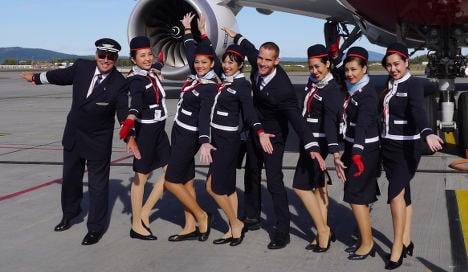NORWEGIAN
Norwegian faces first ever pilot strike
Norwegian Air Shuttle could see its first ever strike by pilots on Sunday, if it fails to end more than three months of fruitless negotiations and strike a deal with unions.
Published: 24 February 2015 14:40 CET

Norwegian is increasingly hiring crews from low cost countries such as Thailand and Eastern Europe. Photo: Norwegian Air Shuttle
Halvor Vatnar, leader of the Norwegian Pilot Union, said that he did not believe that the company’s chief executive Bjørn Kjos had any intention of meeting his members half way.
“Our experience over the past four years is that Kjos want to get rid us, and that he is running a union busting strategy,” he said. “He does not want permanently employed pilots, but hired pilots on obscene terms.”
The company, he argued, was determined to force through a harsh reduction in the wages and employment rights enjoyed by its Scandinavian pilots, arguing that it was the only way for the airline to compete internationally.
“The overarching point is that the cost of pilots in Norway, Sweden and Denmark is too high,” Vatnar said. “It is required that our terms dramatically worsen if we intend to continue on the adventure that has been Norwegian.”
The Swedish Pilot’s Union on Tuesday pledged to mount a sympathy strike alongside Norwegian pilots if the strike goes ahead, starting from March 4.
Amongst other changes, pilots are being asked to accept a salary freeze and longer and less reliable hours, with the company threatening to lay off as many as 200 pilots if its demands are not met.
Lasse Sandakerveien-Nielsen, a press officer for the company, rejected the allegation that the company no longer wanted full-time pilots.
“On the contrary, Norwegian wants to retain its experienced and competent pilots in Scandinavia,” he said.
He pointed to the 1.6 billion kroner ($210m) loss the company recently posted for 2014, saying it showed that the pilots’ present working conditions were not sustainable.
“In light of this, there is no doubt that we must adapt to survive in the future and have an airline based in Norway,” he said.
Url copied to clipboard!


 Please whitelist us to continue reading.
Please whitelist us to continue reading.